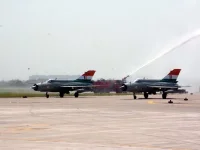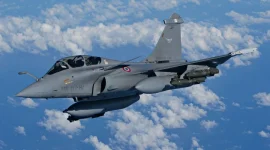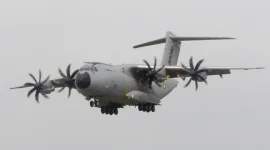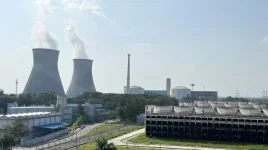In a landmark proposal that could reshape India's aerospace and defence landscape, French aviation major Dassault Aviation has offered to manufacture its Rafale fighter jets entirely in India.
The comprehensive plan aims to establish the country as a global production and maintenance hub for the advanced 4.5-generation aircraft, marking a significant step towards India's goal of Atmanirbharta, or self-reliance, in defence.
This strategic offer is being reviewed by India's Defence Procurement Board and comes at a critical time for the Indian Air Force (IAF).
The IAF is currently operating with approximately 31 fighter squadrons, well below its sanctioned strength of 42, which is considered necessary to manage potential threats on two fronts.
Dassault's proposal to accelerate local production could provide a timely solution to this capability gap and fast-track the long-pending Multi-Role Fighter Aircraft (MRFA) tender for 114 jets.
A 'Make in India' Ecosystem
Central to the proposal is the creation of a complete industrial ecosystem for the Rafale in India, transitioning from component manufacturing to full-scale aircraft production.- Final Assembly in Nagpur: The Dassault Reliance Aerospace Limited (DRAL) facility, a joint venture located in Nagpur's MIHAN Special Economic Zone, is slated to handle the final assembly of the aircraft. Currently producing components like wings and fuselage sections, DRAL would scale up to integrate and deliver complete Rafale jets, with a potential production rate of two aircraft per month. This facility would not only serve Indian orders but could also handle export contracts, such as Indonesia's recent purchase of 42 Rafales.
- Fuselage Production in Hyderabad: In a historic first, Tata Advanced Systems Limited (TASL) will manufacture the entire Rafale fuselage in Hyderabad, a critical airframe component never before produced outside of France. Under agreements signed in June 2025, TASL will receive significant technology transfer to establish a new plant capable of producing up to 24 fuselages annually, starting in 2028. This move is expected to bring nearly 60% of the Rafale's manufacturing value to India.
- Engine Assembly and Maintenance: French engine manufacturer Safran will establish facilities for assembling the M-88 engines in India. Furthermore, a dedicated Maintenance, Repair, and Overhaul (MRO) centre is set to become operational in Hyderabad by late 2026. This will ensure long-term sustainability and reduce operational costs for the entire Indian Rafale fleet, which would include the existing 36 IAF jets, 26 for the Navy, and the proposed 114 MRFA aircraft.
Advanced Capabilities with Indian Customisation
The offer is for the latest Rafale F4 standard, which features significant upgrades over the F3R version currently flown by the IAF. These enhancements include a more advanced AESA radar, an upgraded SPECTRA electronic warfare suite, and superior network-centric warfare capabilities.A key highlight of the proposal is the full integration of a locally developed weapons package.
The Rafale jets made in India will be armed with the Defence Research and Development Organisation's (DRDO) indigenous missile systems.
This includes the Astra family of beyond-visual-range air-to-air missiles and the Rudram series of anti-radiation missiles designed to destroy enemy air defences.
This customisation reduces dependence on foreign armaments like the French MICA and SCALP missiles and gives India sovereign control over its combat assets.
Future-Proofing and Economic Impact
Dassault's offer also includes a roadmap for future upgrades, ensuring the aircraft remains relevant for decades.This includes provisions for Manned-Unmanned Teaming (MUM-T) technology, which will allow Rafale pilots to control unmanned drone wingmen like the HAL CATS Hunter.
Additionally, there is an option to equip the jets with a more powerful 120 kN engine, being co-developed by Safran and India's GTRE for the fifth-generation AMCA fighter, which would significantly enhance the Rafale's performance.
If accepted, production could begin within three years of signing the contract, with an ambitious timeline to deliver all 114 jets in under six years—a rate faster than Dassault's own production lines in France.
Economically, local manufacturing is projected to reduce costs by 20-30% and create thousands of jobs, significantly boosting India's defence industrial base and export potential.
This places the Rafale in a strong position against other contenders in the MRFA competition, such as the American F-15EX, F/A-18 Super Hornet, and F-21 (a variant of the F-16), and the European Eurofighter Typhoon.




